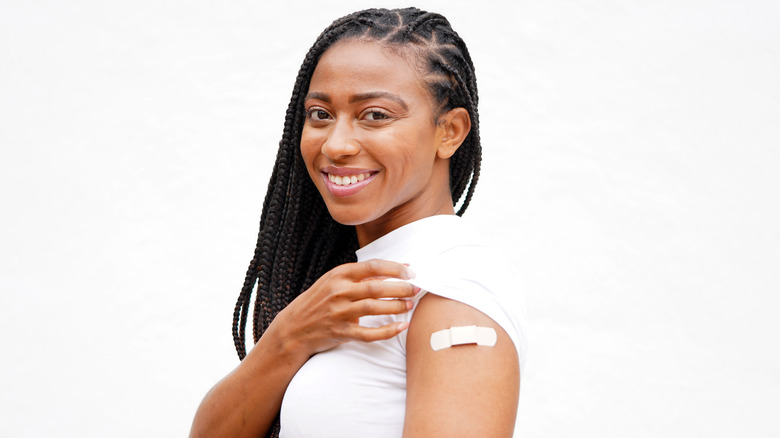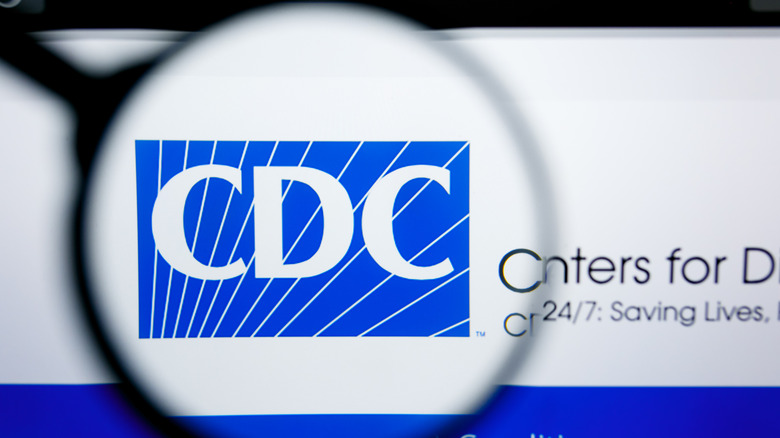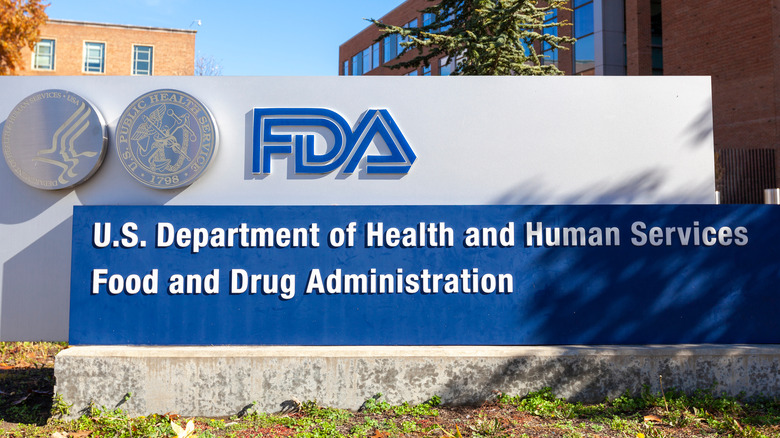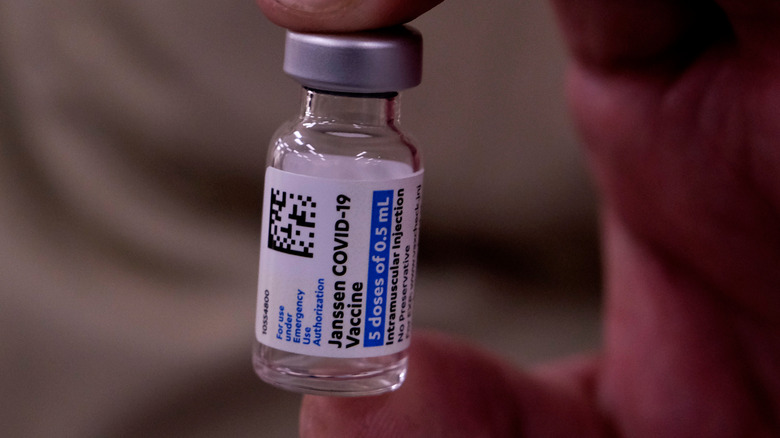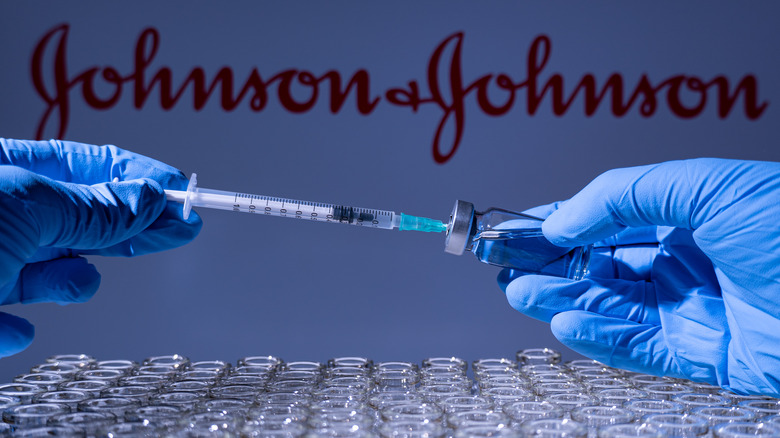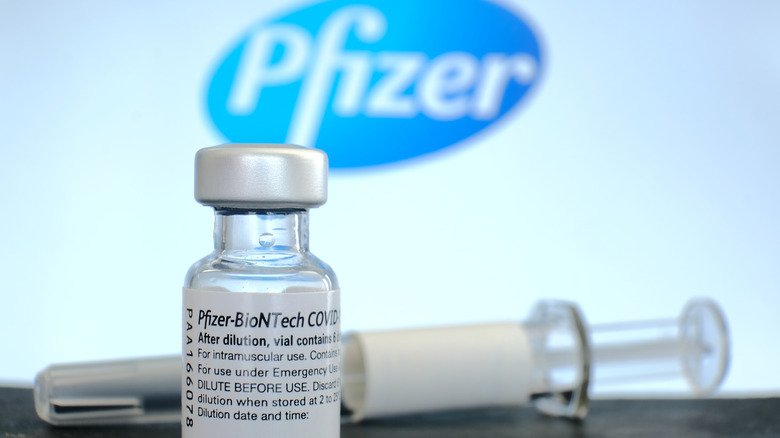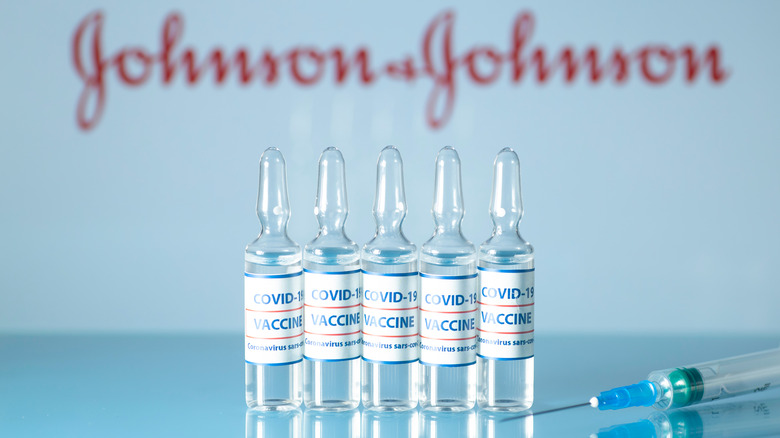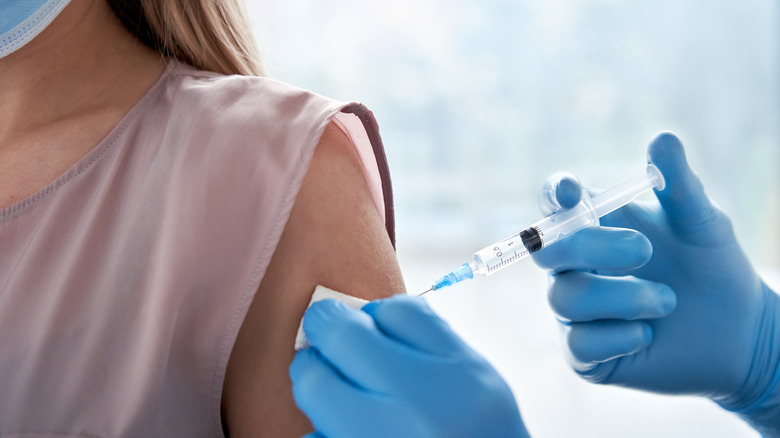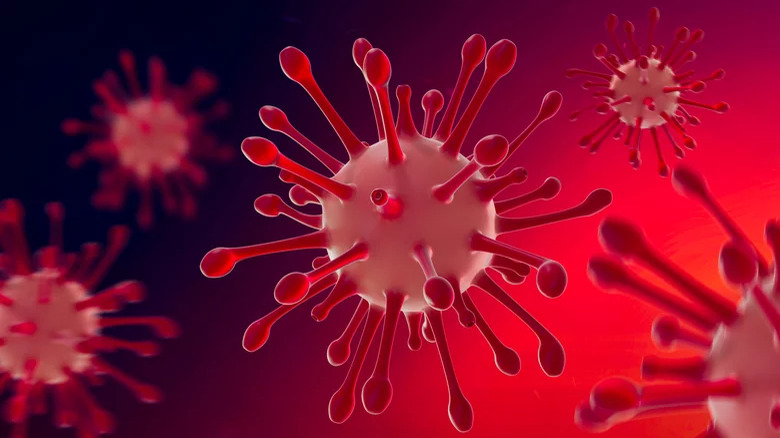Mix-And-Match COVID-19 Vaccines: Which Booster Is Right For You?
On December 9, 2021, the FDA amended its emergency use authorization for the Pfizer booster shot with regard to COVID-19 so that it now includes teens ages 16 and 17. Given that various public health authorities, such as the CDC, have recently strengthened their recommendations regarding booster shots, it would be reasonable to expect that the Moderna and Johnson & Johnson booster shots can't be too far behind in securing their own expanded authorizations. This is all fantastic news, but what happens if your local vaccine center is offering whichever booster happens to be available at the time you walk in? Could a teen who got the Moderna vaccine get the Pfizer booster? For that matter, what about adults?
Back when the booster shot was just making its public debut, there was some question as to whether one who received X vaccine could get a Y or Z booster. Now, however, the various public health authorities are in accord that the "mix and match" approach to COVID-19 vaccines, on the one hand, and boosters, on the other, is safe and effective as a general matter (via FDA). That's also great news. However, there are at least nine possible combinations, and you're probably wondering which one is right for you.
The mix-and-match approach
"All three of the authorized vaccines in the U.S. work by giving the body instructions for making the spike protein from the SARS-CoV-2 virus that causes COVID-19," Glenn J. Rapsinski, a pediatric infectious diseases fellow at the University of Pittsburgh, explained in an article for PBS. The principal difference comes down to how the messages are delivered. The Moderna and Pfizer vaccines "record" these messages using mRNA in a "lipid nanoparticle." The Johnson & Johnson vaccine uses DNA instructions inside what is known as a "viral vector," explained Rapsinski.
The benefits of a "mix and match" approach are both scientific and practical, according to CNET. The practical benefits are obvious (availability) and not so obvious (potential for fewer wasted doses), according to a member of the CDC's advisory panel. The scientific benefits are being demonstrated daily in clinical research, including a December study published in The Lancet, which addressed the mixing and matching of the Astra-Zeneca vaccine with the Pfizer vaccine. Preliminary research is also helpful, like a pre-print study addressing mixing and matching among all three of the COVID-19 vaccines given in the U.S. plus Astra-Zeneca.
All authorized boosters 'boost your antibody response'
Before the mix-and-match approach to COVID-19 boosters was officially recommended by the U.S. Food and Drug Administration and the Centers for Disease Control and Prevention, scientists theorized that there could be an immunological benefit to mixing and matching vaccine and booster doses (via NPR). However, there wasn't much data to go off of at the time. While experts are still gathering data, studies have since been conducted in the EU (where the vaccine program is much the same as the U.S. except that it also authorizes Astra-Zeneca) have indicated that the mix-and-match method is safe and effective (via CNET).
"All of the boosters will dramatically boost your antibody response," Dr. Gregory Poland, the head of the Mayo Clinic's Vaccine Research Group, told the Mayo Clinic. The decision regarding which one you get should be guided by your response to your original vaccine and "any unique risk factors that you have," according to Poland.
Individuals can choose which booster they want to receive, according to the CDC
The Centers for Disease Control and Prevention approves of the mix-and-match approach with COVID-19 vaccines and booster shots. "You may choose which COVID-19 vaccine you receive as a booster shot," the CDC explains. "Some people may prefer the vaccine type that they originally received, and others may prefer to get a different booster." And according to the "Interim Clinical Considerations for Use of COVID-19 Vaccines" report, "ACIP [The Advisory Committee on Immunization Practices] and CDC do not state a product preference." While this is true of boosters, the organization did note, "In general, primary series and additional primary doses should be with the same vaccine product (i.e., the same manufacturer)."
While this may remain the CDC's position indefinitely, it is always worth checking for updates on both the CDC and FDA's respective websites because more data may lead to more updated information.
The FDA's take on booster shots
On October 20, the U.S. Food and Drug Administration announced several amendments to its emergency use authorization with regard to the Pfizer, Moderna, and Johnson & Johnson vaccines for COVID-19. One of those amendments was to include their respective uses as a "mix and match" booster dose "following completion of primary vaccination with a different available COVID-19 vaccine."
As part of this announcement, the FDA offered examples of some of the possible combinations. The FDA discussed a scenario in which a Johnson & Johnson vaccine recipient receives a Pfizer booster, noting that the booster is available just two months after the original Johnson & Johnson vaccine. However, a space of six months would be needed in someone who had gotten the Pfizer vaccine or the Moderna vaccine. While the FDA did not endorse a particular product combination, the association underlined that any combination is generally feasible, acceptable, and doable.
The mix-and-match approach can create a useful synergy, according to one clinical study
Remember some time ago when scientists speculated that a mix-and-match approach to COVID-19 booster shots might be able to deliver more than the sum of its parts? Well, preliminary research that was funded by the National Institutes of Health seems to confirm not only the safety and effectiveness of this heterologous approach but also that many who mix and match will actually enjoy a benefit relative to those who do not (via MedRXIV).
Specifically, the more than 30 participating researchers found that in individuals who received a different booster from their original vaccine, antibody levels, which measure the immune response) "increased 6.2- to 76-fold, depending on which vaccine combination they receive," LiveScience detailed. In individuals who got the same booster and vaccine, antibody levels still increased, but by "4.2- and 20-fold, again depending on what vaccine they got," the site explained.
mRNA vaccines with a viral vector booster
Preliminary research funded by the National Institutes of Health has suggested that individuals who received either of the mRNA vaccines — either Pfizer or Moderna — have a stronger immune response to the same or the other mRNA booster shot, compared with other boosters, such as Johnson & Johnson (via LiveScience). Those individuals who had the same mRNA booster showed a smaller increase in antibody activity, but the researchers believe that getting either will likely produce as favorable a response.
For those who received one of the mRNA vaccines, the Johnson & Johnson booster may not offer the ideal scenario as far as increasing antibody activity goes; however, it is still a better scenario than receiving no booster at all (via Forbes). And interestingly, according to new research out of Beth Israel Deaconess Medical Center and Harvard Medical School, the Johnson & Johnson booster was observed delivering a "slower but more sustained antibody response" than that delivered by the Pfizer booster (via CNN). This research involved just 65 people, however, so it should be considered preliminary.
The Johnson & Johnson vaccine plus Moderna booster stands out from the rest
Preliminary research funded by the National Institutes of Health, the results of which are published on MedRXIV, demonstrates the safety and effectiveness of the mix-and-match approach. The researchers found that particular combinations offer different benefits. The combo that offers the greatest benefit to its recipients, according to the pre-print study, is the Johnson & Johnson vaccine followed by the Moderna booster. It was this demographic that saw the highest relative increase in antibody levels — 76-fold.
If you've received the Johnson & Johnson vaccine, do bear in mind, however, that the Moderna booster given under the study was twice as potent as that given in a clinical setting. This preliminary research also identified the demographic with the lowest relative increase in antibodies, and that was those who received the Johnson & Johnson vaccine for both their original vaccine and their booster doses (via LiveScience).
Johnson & Johnson vaccine with other boosters
If you received the Johnson & Johnson vaccine, which booster will produce the best results? According to a preliminary clinical study, either of the mRNA boosters paired with the Johnson & Johnson vaccine translated to a greater than four-fold increase in antibody activity.
Those who started out with the Johnson & Johnson vaccine and received the Pfizer booster saw a 33-fold increase (via Forbes). Those who started out with the Johnson & Johnson vaccine who received the Moderna booster saw a 56-fold increase; however, the Moderna booster used here is twice as potent as the one given as a booster in clinical settings (via LiveScience). Those who started out with the Johnson & Johnson vaccine and received the Johnson & Johnson booster were not quite as fortunate. These participants "achieved seven-to-10 fold lower binding antibody levels than those who had a mRNA primary vaccination," Forbes reported.
Efficacy isn't the only factor that matters
Although the CDC specifically makes no "product preferences," a review of the limited research available — most of which is preliminary and not yet peer-reviewed — appears to suggest that the Moderna booster is a good bet if efficacy is the sole consideration. This was noted in both a December study published in The Lancet and an October study published preliminarily on MedRXIV.
That said, efficacy isn't the sole consideration in the eyes of the FDA. Rather, the FDA weighs potential benefits against the potential risks. As Mayo Clinic's Dr. Poland pointed out, if you have a choice of boosters, you should consider any known risk factors, including allergies, common side effects, side effects you experienced the first time around, and less common side effects such as the risk of myocarditis that could come with mRNA vaccines such as Moderna. All of that being said, the Moderna booster dosage is half that of the Moderna vaccine — a decision the company made in the hopes of helping mitigate side effects, as CNBC reported.
Pfizer vaccine with booster
Based on the preliminary study that was published on MedRXIV, Forbes explained that a "close second" in raising antibody levels "could be the two-dose Pfizer-BioNTech for primary vaccination followed by a Moderna booster." In any event, and most significantly, the Pfizer booster may be at least as effective at raising antibody activity levels. Specifically, for those who received the Pfizer booster with the Johnson & Johnson vaccine, the preliminary study recorded a 33-fold increase in antibody activity (via Forbes). And those who received either the Pfizer or the Moderna booster in conjunction with either mRNA vaccine were observed to have a favorable immune response.
While these results could look different outside of the clinical setting, Forbes reminded readers, "Chances are you won't have buyers remorse and end up thrusting your hands to the sky in the future and saying, 'why, oh why did I choose that booster?' All should give you a good boost to your immune protection."
Johnson & Johnson vaccine recipients tend to opt for mRNA boosters
The fact that getting any booster is preferable to getting no booster is no longer in question, as the Centers for Disease Control and Prevention has confirmed. However, recipients of the Johnson & Johnson vaccine tend to look for a non-Johnson & Johnson booster, according to data from the CDC (via NBC News). Specifically, 76% of the roughly 1 million people who got a booster shot after having received the Johnson & Johnson vaccine selected a different vaccine, with 44% opting for Moderna.
That doesn't mean it's a bad idea to get a Johnson & Johnson booster after having the matching vaccine — or any other authorized vaccine, for that matter. In fact, a new, albeit very small, study out of Boston, Massachusetts suggests that in those who initially received the Pfizer vaccine, the Johnson & Johnson booster may offer advantages over the Pfizer booster (via CNN). Please do note, however, that this analysis involved data relating to just 65 people, which means that it will need to be confirmed via a large-scale, randomized study before its results are considered anything more than preliminary.
The Pfizer booster is recommended for people who were vaccinated outside of the U.S.
If you received your vaccination as part of a clinical trial or outside of the United States, then it is possible that the vaccine you received was something other than the Pfizer, Moderna, and Johnson & Johnson formulations. The good news is that the use of mix-and-match booster shots is approved for you as well, subject to certain limitations contained in the Centers for Disease Control and Prevention's advice regarding interchangeability.
The guidelines regarding mixing and matching a United States-authorized booster with a non-FDA-approved or non-FDA-authorized vaccine are set forth in the CDC's COVID-19 Vaccine Emergency Use Instructions Resources. As of this writing, the CDC only recommends pairing the Pfizer booster with vaccines neither approved nor authorized in the U.S. This includes "the AstraZeneca COVID-19 vaccine, the Novavax COVID-19 vaccine, [and] the Sinopharm COVID-19 vaccine," per the CDC.
Mixing and matching in light of the Omicron variant
The Omicron variant of the novel coronavirus was identified in late November 2021. The current body of research on the mix-and-match approach was initiated prior to that time. Although some of the clinical study participants may have become infected with this variant after receiving a booster, none of the studies were in a position to measure the response of any particular booster or mix and match combo with regard to such variant (via CNET).
Until clinical studies designed to measure such response can be completed, Chief Medical Advisor Dr. Anthony Fauci noted in an interview with NBC News that even if it turns out that the boosters available are not "as good in protecting against initial infection," they still have "a very important impact on diminishing the likelihood that you're gonna get a severe outcome from it." Getting a booster shot provides an "extraordinary increase in protection," the expert confirmed.

